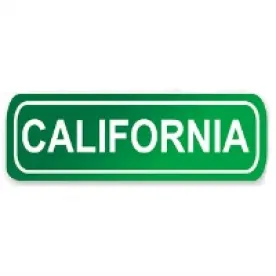California recently amended its existing law governing inquiries into and the use of juvenile criminal information. Effective January 1, 2017 employers will be restricted from asking about, seeking, or using a California applicant/employee’s juvenile criminal history in the employment context.
Summary
Assembly bill (A.B.) No. 1843 amends California Labor Code § 432.7, the law that sets forth many of the California prohibitions on employment-related inquiries into and use of an applicant/employee’s criminal history, by establishing a number of new restrictions related to juvenile criminal history information. Specifically, the new law prohibits employers from:
- Asking an applicant to disclose, either in writing or verbally, information concerning or related to an arrest, detention, processing, diversion, supervision, adjudication, or court disposition that occurred while the individual was subject to the process and jurisdiction of juvenile courts/ law.
- Seeking from any source whatsoever, or using, as a factor in determining any condition of employment(e.g., hiring, promotion, termination, decisions related to a training program, etc.), any record concerning or related to an arrest, detention, processing, diversion, supervision, adjudication, or court disposition that occurred while the individual was subject to the process and jurisdiction of juvenile courts/law.
The amended law defines the word “conviction,” as used throughout California Labor Code § 432.7, to exclude alladjudications made by any court with respect to a person who is under the process and jurisdiction of juvenile courts/law. This is significant because other preexisting portions of this code section allow an employer to inquire into, seek, and use certain convictions. Under the amended law, these preexisting sections would no longer allow an employer to inquire into, seek, or use juvenile convictions.
Interestingly, these prohibitions do not have the same exceptions afforded to the other previously existing restrictions of California Labor Code § 432.7 (e.g., allowing an employer to ask about, seek, or use certain criminal record information if the law requires, or if the applicant is required to use or possess a firearm in the course of his or her employment, etc.). This may create a conflict with federal law or other legal requirements that require certain levels of applicant/employee screening, leading to many questions about how this law will be applied once it goes into effect.
According to Sarah R. Nichols, “The only exceptions apply to certain health care facilities, as defined in Section 1250 of the Health and Safety Code. Those employers may ask applicants to disclose an arrest under any section specified in Section 290 of the Penal Code (for those positions with regular access to patients) or an arrest under any section specified in Section 11590 of the Health and Safety Code (for those positions with access to drugs and medication) in certain circumstances.”
Nichols continued, “Employers in California may want to review their practices to ensure information that is not permissibly considered is not being requested.”






 />i
/>i
